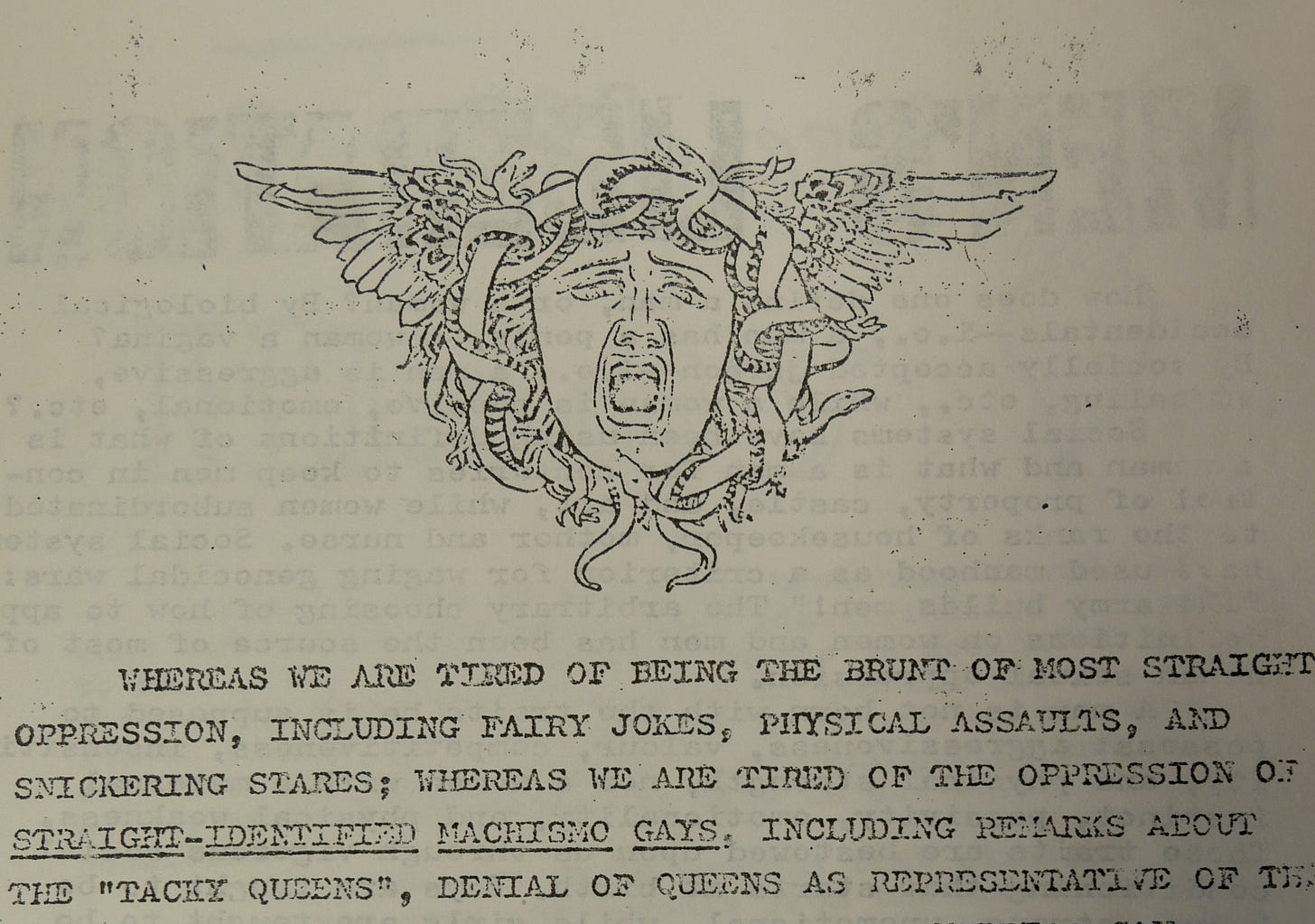The Radical Queens Manifestos
Radical Queens was a group of nontraditional drag queens, non-men, and androgynous people.
Radical Queens was a Philadelphia group of nontraditional drag queens, non-men, and gender-nonconforming folks, co-founded by Cei Bell and Tommi Avicolli Mecca in 1973. According to people I spoke, Radical Queens and drag queens in general were not always accepted in the Gay Activists Alliance, a prominent group working towards gay liberation at the time. The Radical Queens had their own eponymous publication, which called out this exclusion but also provided a platform to imagine a new way of thinking about gender and emphasize the group’s support of feminist and lesbian causes. Today’s issue looks at some of the manifestos released in the magazine’s early issues (both printed in Avicolli Mecca’s book, listed at the end).
Know someone that I should interview? Fill out or send them this form.

Radical Queens Manifesto #1, 1973
Whereas we are tired of being the brunt of most straight oppression, including fairy jokes, physical assaults, and and snickering stares; whereas we are tired of the oppression of straight-identified machismo gays, including remarks about the ‘tacky queens’, denial of queens as representative of the gay community, and being looked down upon; whereas gay liberation movements have often denied our very existence while in the same breath patting us on the ass and telling us we are equal (as long as we remain Uncle Toms); whereas we have decided that macho straight identification is psychologically oppressive and destructive, we have branded together in a union of Radical Queens to shatter myths, ZAP! our oppressor (both straight and gay), and thereby stand up and get our right to be ourselves both in the straight and in the gay communities, including wearing makeup, doing drag, and other femme-identified activity that any queen decides expresses him or herself!!!!
Radical Queens Manifesto #2, 1973 (excerpt)
Radicalqueens are not men, we are non-men. We are not women. We do not accept the attributes of femininity, that is, passivity, non-aggressiveness, fragility, etc., things which our sisters in the Women’s Movement see as oppressive and undesirable traits socialized into women. We do not accept the traditional role of women as any alternative to the oppressor role of the male. Both roles are inventions of the oppressor, both are oppressive to those who accept them.
Further reading:
“In celebrating Philly LGBT history, the ‘T’ is silent—and that’s not all,” Cei Bell, WHYY, July 2015.
“Smash the Church, Smash the State! The Early Years of Gay Liberation,” ed. Tommi Avicolli Mecca, (San Francisco: City Lights Books, 2009).


